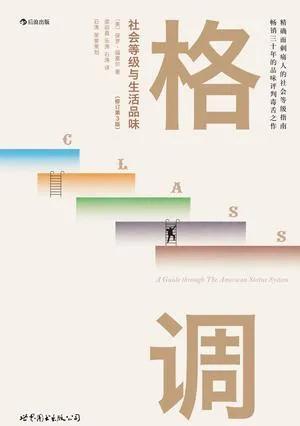Do your words, looks, dress, and even a blanket in the living room reflect your class?
After watching "Style", there will be an answer.

The author, Paul Fauser, a professor of literature at the University of Pennsylvania in the United States, has worked tirelessly to divide the American social hierarchy into nine categories, the invisible top, the upper, the upper, middle, and lower classes, the extremely poor, and the invisible bottom. It's a sensitive topic, but the author stands up and sings and dances on the edge of danger.
However, I have to admire the meticulous observation of daily life and the pungency of the language, such as:
The lower your social class, the more you eat with relatives in a year.
If a person reaches the climax of his feelings when he hears the cuckoo call in Beethoven's Pastoral Symphony, he or she is probably a middle class.
For example, the proportion of people who go to college is still about thirteen percent, and the other thirty percent of people go to schools called "universities."
As stated in the afterword to the publication
"Anyone with a keen eye can see the wonderful resemblance between the author's American society and today's Chinese society." Most of the phenomena can be found in today's China, such as the complete reduction of tourism travel, the "upgrading" of schools that do not have the conditions to run schools to universities, and the promotion of real estate businessmen with the concept of "home". ”
On the one hand, the author pessimistically believes that we will not be able to escape from the class from which we come from in our lifetime, and completely break with all the idioms of the lower classes. It also portrays another class of "alternatives".
Alternative origins and upbringing necessarily bear the imprint of the poor or the middle class. But they become a different kind of person through transformation, they are knowledgeable, they don't like restraint, they love freedom, and they don't follow the rules. Walking on formal occasions in flannel shirts and hiking boots is more cautious than the middle class and the ignorant ignorance and ignorance of the upper class. The author's description of the alternative is clearly much softer.
Whether the book is boring or bitter. You may wish to take this original mirror, look at his body with a mirror, always work hard, and finally maintain freedom.